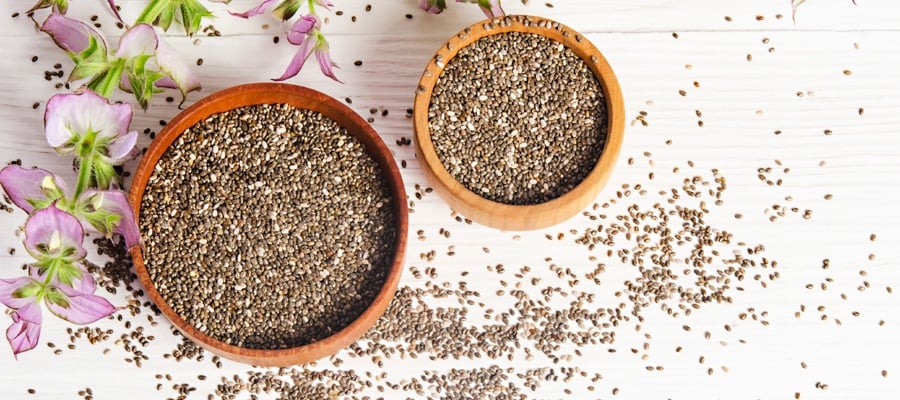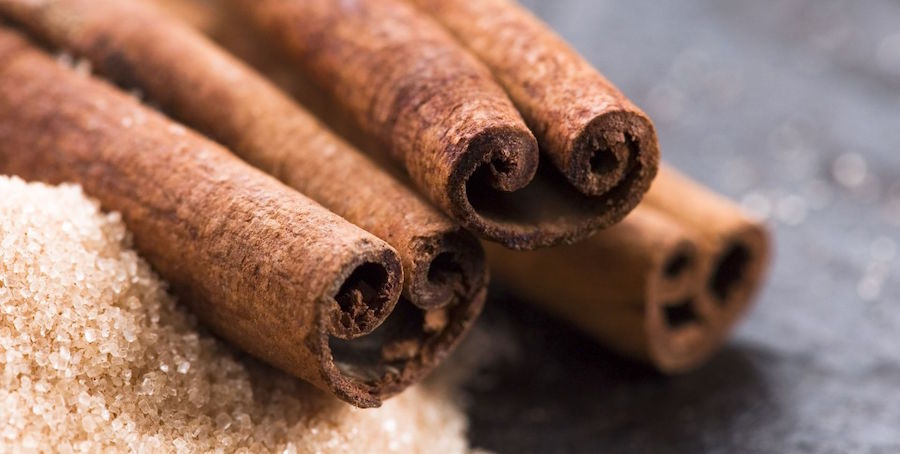5 Seeds that Support Healthy Digestion
Image Copyright: Olga Tkachenko / 123RF Stock Photo
Have you ever gone to the home of a friend or relative for a holiday meal or barbecue and come away too full and bloated? Perhaps you’ve experienced these symptoms for hours afterwards. Maybe you have heartburn, constipation, or diarrhea. No need to panic and grab the over-the-counter heartburn pills or the laxatives. There are natural herbal products that can help ease your digestive discomforts— seeds! They are wholesome and nutritious. Seeds taste great, and they can help you feel better.
Here are 5 seeds that can help support healthy digestion (remember to always consult your healthcare provider before starting a regimen of seeds):
1. Caraway (Carum carvi L.)
I grew up with caraway seeds. They were in rye bread, cabbage soup, and on rolls we got from the local bakery. According to WebMD (2009), caraway was used in folklore to prevent theft of any object containing the seed. Caraway was also said to keep lovers from losing interest in each other. WebMD (2009) also stated that in today’s world caraway is used for heartburn, bloating, gas, appetite problems, spasms of the stomach and intestines, and as a laxative. However, they also state that more evidence is needed.
Caraway can be used as an essential oil or as a tea, or you can just eat the seeds. Here’s the basic recipe for how to make an herbal tea. I also like this caraway tea recipe from Fresh Bites Daily.
2. Fennel (Foeniculum vulgare Mill.)
Fennel has a long history in folklore. It is a perennial in the Mediterranean. Roman gladiators thought the seeds gave them extra strength in the arena. Culpepper (1814), a 17th-century herbalist, in his book A Complete Herbal, suggested fennel for weight reduction. In some cultures, a dish of fennel seeds is put on the table to aid with digestion. Fennel seed can be chewed for bad breath. Fennel tea is made from crushing or grinding the seeds and then pouring boiling water over them.
A 2014 study researched fennel seeds and the production of saliva. The study was done to compare the salivary pH at baseline and five minutes after chewing the seeds. Twenty-two people chewed 1.3 grams of fennel seeds for five minutes and salivary pH was recorded.
The results showed a significant rise in salivary pH after chewing the seeds. The conclusion was that chewing the fennel seeds showed a rise in salivary pH, which can prevent demineralization and have an anti-carcinogenic effect.
3. Chia (Salvia hispanica L.)
Chia is native to Mexico and South America. It is a member of the mint family and was used by the Mayans and Aztecs when traveling long distances with few provisions. Chia is a great source of fiber, which aids digestion. This promotes bowel regularity and healthy stool.
A review at the 4th International Conference on Recent Innovations in Science Engineering concluded that chia helps improve glucose levels in the blood by slowing the digestion of carbohydrates.
Chia seeds need to be eaten properly to prevent bloating and gas. Start out with a small amount and increase gradually as your body becomes used to it. Another possibility is to grind the chia seeds and add them to foods you eat.
4. Flaxseed (Linum usitatissium L.)
According to Goyal (2014), flaxseed has been used for medicine since ancient times. Flax also goes by the name linseed. Perhaps you have heard of linseed oil that is used in oil paints. Linen is made from flaxseed, and flaxseed is used in cooking and baking. I like bread that contains flaxseeds.
Ground flaxseed is one of the best sources of fiber. It is usually used to relieve constipation, and it may also help lower total blood cholesterol.
Ground flaxseed goes rancid quickly. Buy the whole seed and grind it in a coffee grinder just before using. You also get more nutrition from ground flaxseed as the whole seeds just pass through the body. If you are new to flaxseed start with a small quantity and build up the amount gradually to avoid cramping of the intestines and diarrhea.
5. Hemp (Cannabis sativa L.)
Hemp is in the same family as marijuana, but it does not have the same effect on the nervous system and cannot be used like marijuana. Hemp is a useful plant that can be used to make clothing and rope, besides having culinary and medicinal uses.
Fiber plays an important role in health and digestion. Hemp seeds in the diet are a good source of fiber and promote regularity. Hemp seeds can be sprinkled on cereal and make you feel full so you won’t be inclined to do a lot of snacking.
According to modern folklore, hemp naturally suppresses the appetite. This makes it a good part of weight loss programs. This means that adding hemp seeds to the diet can reduce food cravings.
Remember: Always consult your healthcare provider before starting use of an herb or seed for digestive support. Some herbs and medicines don’t mix especially well.
References
Ajithkrishnan, C.G., Thanveer, K., & Singh, R.P. (2014). An in-vivo evaluation of the effect of fennel seeds chewing on salivary pH. Journal of Oral Health and Community Dentistry, 8(2), 79-81.
Axe, J. (n.d.). 9 chia seed benefits + side effects. Food is Medicine. Retrieved from https://draxe.com/chia-seeds-benefits-side-effects/
Culpepper’s Complete Herbal. (n.d.). Retrieved from http://www.complete-herbal.com/culpepper/commonfennel.htm
Goyal, A., Sharma. V., Upadhyay, N., Gill, S., & Sihag, M. (2014). Flax and flaxseed oil: an ancient medicine and modern functional food. Journal of Food Science and Technology, 51(9), 1633-1653. http://doi.org/10.1007/s13197-013-1247-9b
Gale Encyclopedia of Alternative Medicine. (2005). Fennel. Encyclopedia.com. Retrieved from: http://www.encyclopedia.com/plants-and-animals/plants/plants/fennel
Rose, J. (n.d.). Caraway tea: An ancient remedy for digestive problems, in a warm cup. Fresh Bites Daily. Retrieved from https://www.freshbitesdaily.com/caraway-tea/
Wang, X-S., Tang, C.-H., Yang, X.-Q., & Gao, W.-R. (2008). Characterization, amino acid composition and in vitro digestibility of hemp (Cannabis sativa L.) proteins. Food Chemistry, 107(1), 11-18. Retrieved from https://doi.org/10.1016/j.foodchem.2007.06.064.(http://www.sciencedirect.com/science/article/pii/S0308814607006358)
Zeratsky, K. (2015, December 13). Does ground flaxseed have more health benefits than whole flaxseed? Mayo Clinic. Retrieved from http://www.mayoclinic.org/healthy-lifestyle/nutrition-and-healthy-eating/expert-answers/flaxseed/faq-20058354
This article is for informational purposes only. It is not intended to treat, diagnose, cure, or prevent disease. This article has not been reviewed by the FDA. Always consult with your primary care physician or naturopathic doctor before making any significant changes to your health and wellness routine.
Disclosure of Material Connection: I am a graduate of American College of Healthcare Sciences, the Institution that publishes this blog. However, all opinions are my own. This blog may contain affiliate links. I am disclosing this in accordance with the Federal Trade Commission’s 16 CFR, Part 255: “Guides Concerning the Use of Endorsements and Testimonials in Advertising.”





